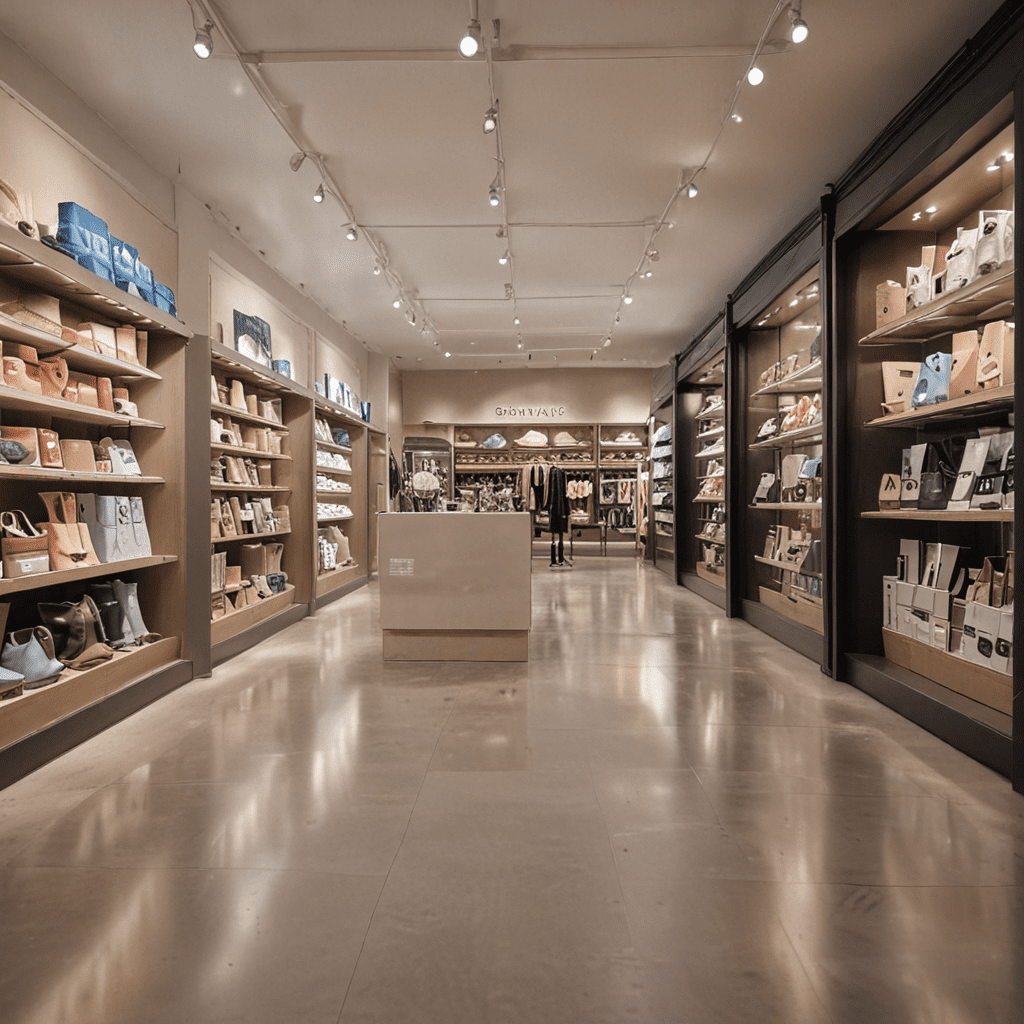
SaaS for Retail: Personalizing the Shopping Experience
1. Introduction
In today's fiercely competitive retail landscape, providing a personalized shopping experience is crucial for businesses seeking to stand out and drive customer loyalty. Software-as-a-Service (SaaS) solutions have emerged as powerful tools that empower retailers to tailor their offerings to the unique preferences and behaviors of each customer. This article will delve into the role of personalization in retail, the benefits of SaaS for retail personalization, and provide guidance on choosing and implementing the right solution.
2. The Role of Personalization in Retail
Personalization enables retailers to create tailored shopping experiences that address the specific needs and interests of individual customers. By leveraging data-driven insights, retailers can deliver relevant product recommendations, personalized promotions, and customized content that enhances the overall customer journey. This not only increases customer satisfaction but also drives higher conversion rates and average order value.
3. Benefits of SaaS for Retail Personalization
SaaS solutions for retail personalization offer numerous benefits that traditional on-premises systems cannot match:
- Scalability: SaaS solutions are designed to handle large volumes of data and can scale seamlessly as a retailer's business grows.
- Flexibility: SaaS platforms are highly configurable, allowing retailers to tailor the solution to their specific needs and business requirements.
- Cost-effectiveness: SaaS eliminates the need for upfront infrastructure investments and ongoing maintenance costs, making it a cost-effective option for retailers of all sizes.
- Real-time insights: SaaS solutions provide retailers with real-time visibility into customer behavior, enabling them to make quick and informed decisions to optimize the shopping experience.
- Continuous innovation: SaaS providers continuously update and enhance their platforms, ensuring that retailers have access to the latest personalization features and technologies.
6. Implementation and Best Practices
Successful implementation of a SaaS for retail personalization requires careful planning and execution. Here are some best practices to follow:
- Define clear goals and objectives: Determine the specific outcomes you aim to achieve with personalization, such as increased conversion rates or improved customer satisfaction.
- Segment your customer base: Divide customers into distinct groups based on demographics, behavior, and preferences to tailor your personalization efforts effectively.
- Personalize across all touchpoints: Extend personalization beyond the website to include email campaigns, mobile apps, and in-store experiences to create a consistent and cohesive customer journey.
- Use data to continuously optimize: Leverage real-time data to monitor the performance of your personalization strategies and make adjustments as needed to maximize results.
7. Case Studies of Successful SaaS for Retail Personalization
Numerous retailers have successfully implemented SaaS for retail personalization, achieving tangible benefits. Here are a few notable case studies:
- Amazon: Amazon's personalized recommendations and product suggestions have significantly increased conversion rates and customer loyalty.
- Target: Target's personalized email campaigns, based on customer purchase history and browsing behavior, have driven higher open rates and click-through rates.
- Sephora: Sephora's mobile app, which offers customized product recommendations and virtual try-ons, has enhanced the in-store shopping experience and increased sales.
8. Challenges and Limitations
While SaaS for retail personalization offers immense benefits, it also comes with certain challenges:
- Data privacy concerns: Retailers must carefully manage customer data to ensure privacy and comply with relevant regulations.
- Integration with existing systems: Integrating SaaS solutions with existing CRM and e-commerce platforms can be complex and time-consuming.
- Limited customization: Some SaaS solutions may not offer the level of customization required to meet the specific needs of a retailer's business.
9. Future Trends in SaaS for Retail Personalization
The future of SaaS for retail personalization is bright, with emerging technologies and trends shaping its evolution:
- Artificial intelligence (AI): AI-powered personalization solutions will automate tasks, enhance recommendations, and provide more personalized experiences.
- Omnichannel personalization: Retailers will focus on delivering consistent and personalized experiences across all channels, including online, mobile, and in-store.
- Ethical personalization: Retailers will prioritize ethical considerations, ensuring that personalization efforts are transparent, respectful of customer privacy, and avoid bias.
10. Conclusion
SaaS for retail personalization is a transformative technology that empowers retailers to create highly personalized and engaging shopping experiences for their customers. By leveraging the benefits of scalability, flexibility, and cost-effectiveness, retailers can effectively segment their customer base, deliver tailored recommendations, and enhance the overall customer journey. As technology continues to advance, SaaS for retail personalization will play an increasingly critical role in the success and competitiveness of retailers in the digital age.
FAQ
Q: What are the key benefits of SaaS for retail personalization?
A: Scalability, flexibility, cost-effectiveness, real-time insights, and continuous innovation.
Q: How can retailers effectively implement SaaS for retail personalization?
A: Define clear goals, segment the customer base, personalize across touchpoints, and use data to optimize strategies.
Q: What are some real-world examples of successful SaaS for retail personalization implementations?
A: Amazon, Target, and Sephora have achieved significant results using SaaS personalization solutions.
Q: What challenges should retailers be aware of when using SaaS for retail personalization?
A: Data privacy concerns, integration challenges, and limited customization options.
Q: What are the future trends in SaaS for retail personalization?
A: Artificial intelligence, omnichannel personalization, and ethical considerations will shape the evolution of SaaS personalization solutions.

